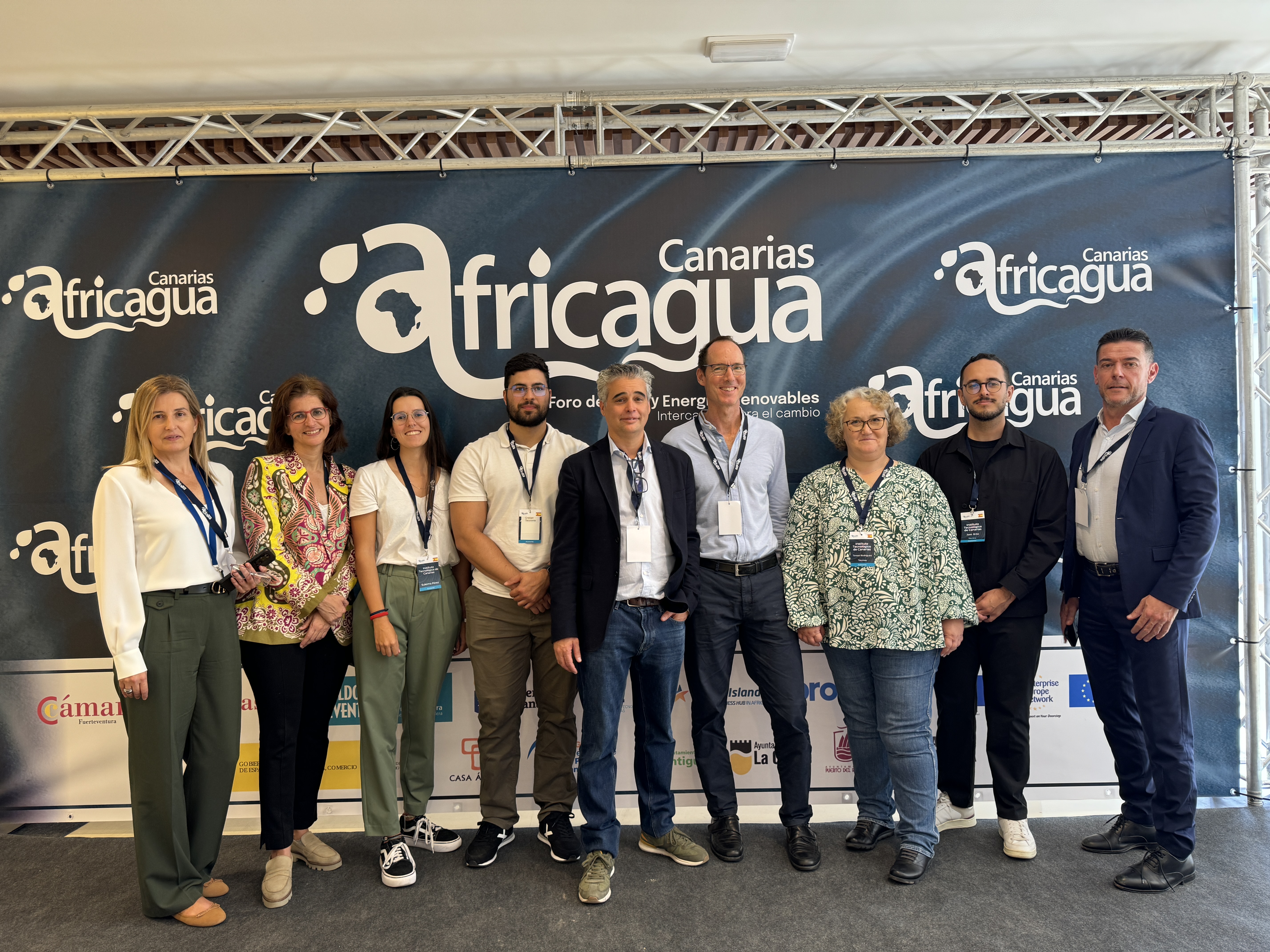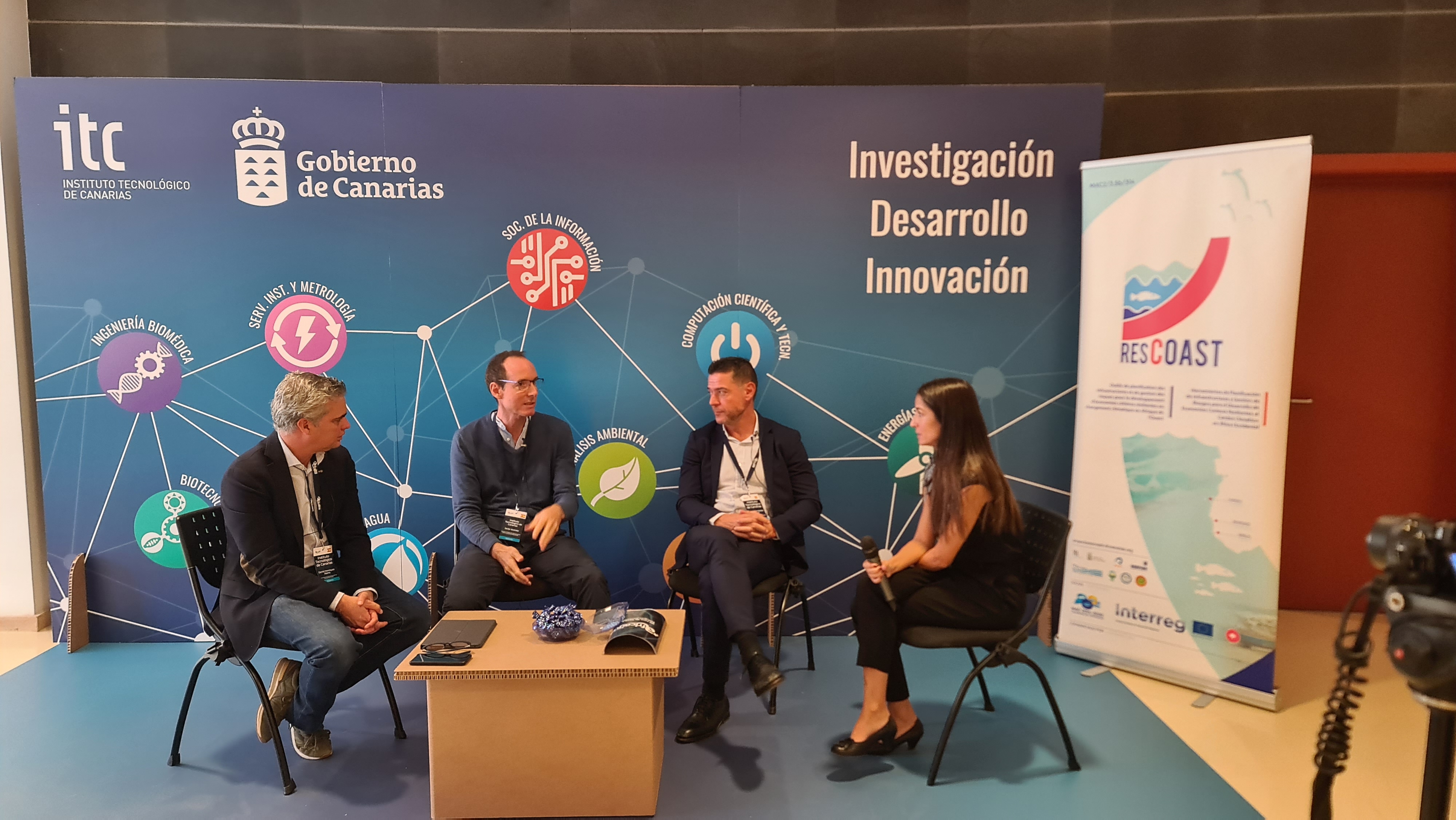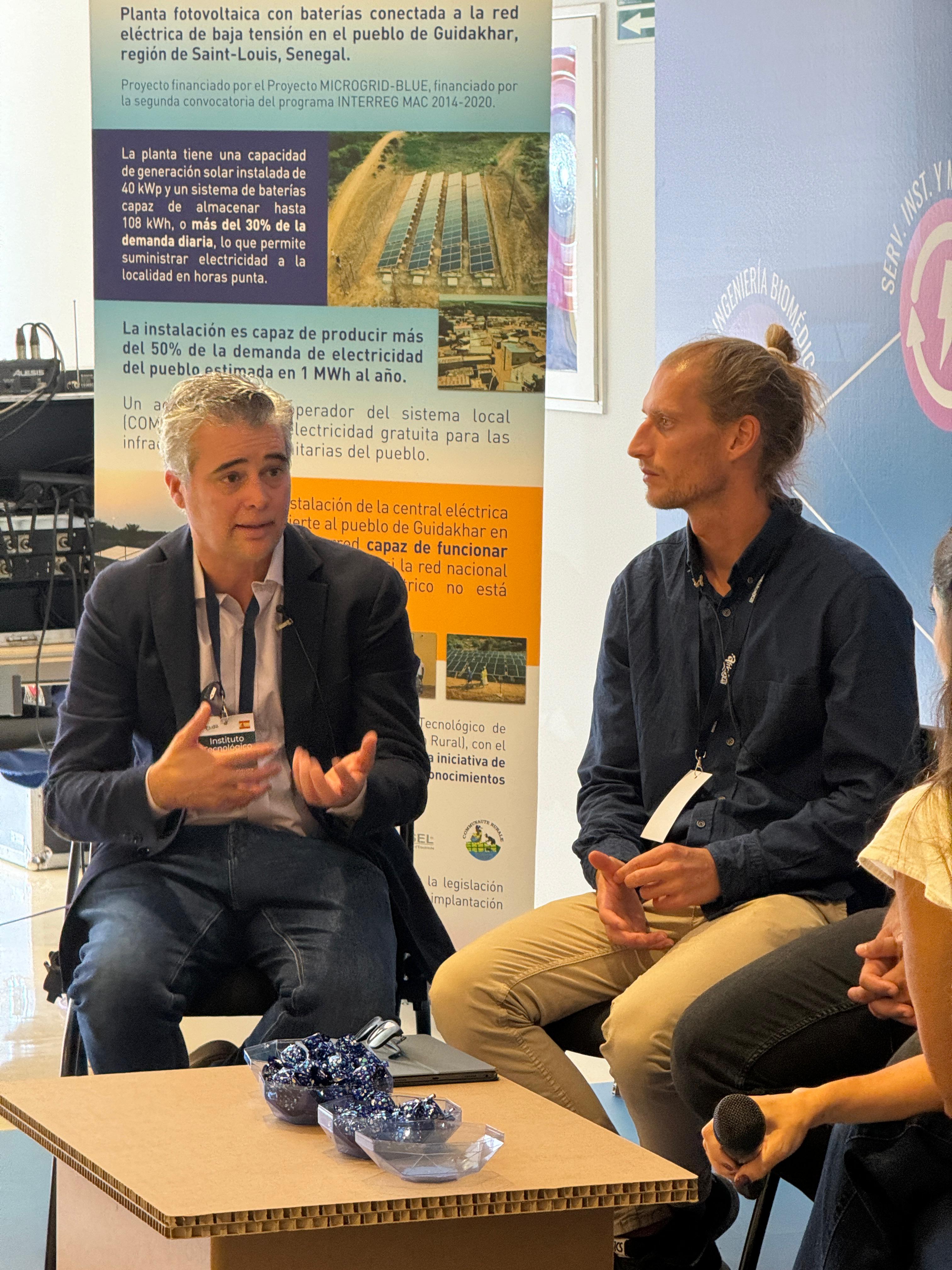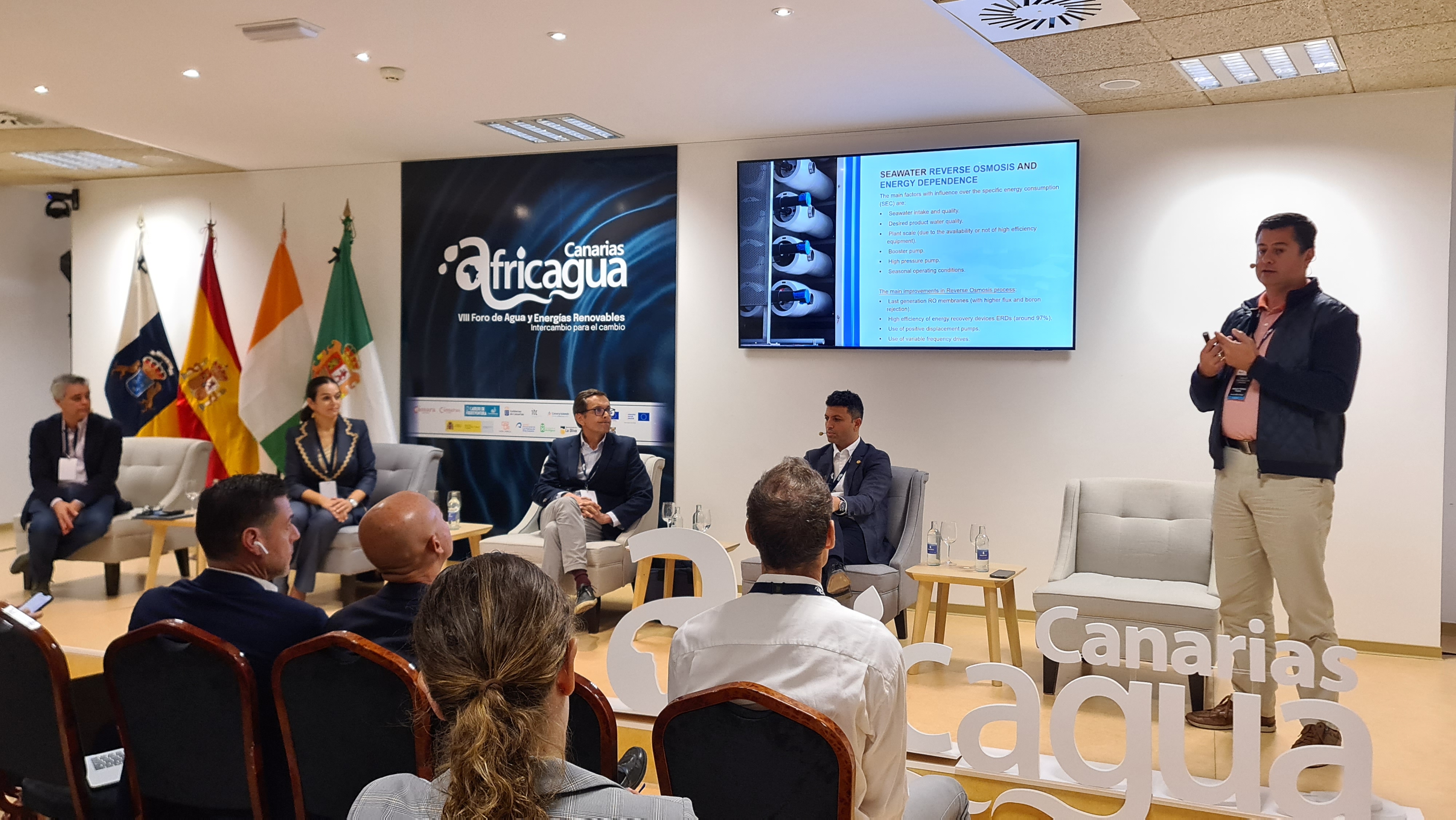The International Meeting, a reference event in the renewable energy and water sectors, held on November 23 and 24 in Fuerteventura, served as a meeting point for companies, organizations, and strategic agents at an intercontinental level
The General Directorate of Relations with Africa of the Government of the Canary Islands, the Chamber of Commerce of Fuerteventura, and the Island Council, with the support of the Canary Islands Institute of Technology (ITC) and Proexca, backed the eighth edition of Africagua with the aim of positioning the Canary Islands as an intercontinental business hub, with a focus on sustainable development
The Canary Islands Institute of Technology (ITC), a public R&D center under the Ministry of Universities, Science, Innovation, and Culture of the Government of the Canary Islands, played a prominent role at "Africagua Canarias 2023," the leading forum on renewable energies and water, held on November 23 and 24 at the Palace of Training and Congresses of Fuerteventura. The ITC actively participated in several thematic sessions, where it presented some of its key projects on energy planning and maximizing renewable sources (Microgrid-Blue), decarbonization of transport and green hydrogen (Biogreenfinery), blue economy and climate change risk management (Res-Coast), and new technologies in water resource management (DESALRO 2.0).
The conference program included the participation of multilateral organizations and international companies from the water and renewable energy sectors, as well as representatives from various African countries such as Ivory Coast, Ghana, Mauritania, Gambia, Senegal, Cape Verde, Morocco, and São Tomé and Príncipe.
On November 23, ITC’s Director of R&D, Gonzalo Piernavieja, presented the advances achieved with the recent installation of the first 100% renewable hydrogen biorefinery in the Canary Islands: Biogreenfinery. This research platform is designed to test the direct use of hydrogen in the road transport sector and to produce biofuels as alternatives for maritime (ammonia) and air navigation.
Other notable ITC initiatives highlighted at Africagua, all aimed at achieving resilient economies and more sustainable territories, include: Res-Coast, a project focused on territorial planning and risk management in coastal areas threatened by climate change; Microgrid-Blue, a proposal for distributed electricity generation and optimization of renewable energy sources to achieve a more equitable and sustainable energy model; DesalRO, an initiative where knowledge-based economy is applied to the water industry through access to efficient technology for desalinating water and addressing challenges to ensure water security; and Reffect Africa, an ambitious initiative involving 30 partners from 16 countries—5 European and 11 African—to test and adapt innovative energy solutions based on the valorization of agricultural and food industry biomass waste in Africa.
The collaborative space fostered by the European Interreg MAC program among the island territories of the Canary Islands, Madeira, Azores, and Cape Verde, and with third countries from the African continent, offers a strategic framework for the exchange of knowledge, experience, and technology. Through forums like Africagua, the Canary Islands strengthen their position as a knowledge hub, deepening trade relations and fostering public-private collaboration with Africa.





 English
English  Español
Español 

